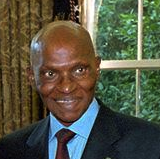In Senegal, popular anger over chronic electricity shortages and the autocratic behavior of octogenarian President Abdoulaye Wade have produced several waves of protest since last summer. The same anger flared again on June 23, when protesters took to the streets to denounce Wade's plans to amend the constitution and lower the threshold necessary to win in the first round of next February's presidential election. Shaken, Wade backed down from what was widely perceived as a power grab. The protesters' triumph does not mark the end of the conflict, however: Wade still intends to run for a third term, and protests broke out again over electricity problems last week.
Increasing discontent with Wade and Senegal's economic situation will present the president of this historically peaceful country with tough choices, even if he wins in 2012. Wade can take the path of his predecessors and ultimately allow for a transition to new leadership, or he can follow the example of certain leaders in the region and attempt to keep himself and his son, Karim, in power as long as he can. The more that Wade stokes popular anger, the more uncertainty Senegal will face.
Recent protests have been driven largely from below. In July and August of 2010, protests over electricity shortages drew support from a coalition of youth, small business owners, Muslim leaders and other citizens. By contrast, anti-Wade demonstrations on March 19 and in June, though organized by a Senegalese media tycoon and opposition leaders, have been primarily attended by Senegalese youth, with turnout boosted by youth networks and the involvement of Y En A Marre ("Enough is Enough"), a coalition of anti-Wade rappers who have made skillful use of media. Coming in the midst of the Arab Spring and featuring media-savvy youth leaders, the Senegalese protests are now the subject of significant discussion abroad, further reinforcing the morale of people in the streets of Dakar, Kaolack and other cities.

